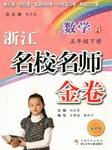题目内容
.(2010·湖南师大附中海口中学高三第二次月考) 21.— May I use your computer to send an e-mail?
—___________!
A. Come on B. Take care C. Go ahead D. Hold on
C

练习册系列答案
 浙江名校名师金卷系列答案
浙江名校名师金卷系列答案
相关题目
一中学班级就生活在城市或乡村问题进行了辩论。下面是部分辩论记录要点,请确定你的观点,参照该记录要点并发挥想像,写一篇题为I Prefer to Live in the City/the Countryside的短文。字数:100字左右。
| Where do you prefer to live, in the big city or in the quiet countryside? | ||
| the city | vs. | the country |
| The city: so many things to do; make more money . The country: too quiet ; boring; no jobs | The city : very noisy ; crowded. The country: quiet ; enjoy so much in nature. grow food on a farm. | |